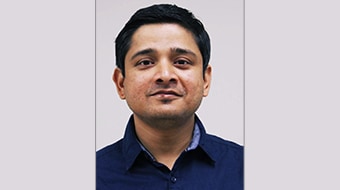New Delhi In a dramatic turn of events, the Supreme Court will on Tuesday consider a plea staying the swearing-in of advocate LC Victoria Gowri as a judge in the Madras high court, less than 24 hours after the Union government notified her appointment following a recommendation from the top court collegium.
While the petitions citing Gowri’s alleged hate speeches against Christians and Muslims are expected to come up before a bench led by justice Sanjiv Khanna around 12 pm, Gowri is set to be sworn-in as an additional judge of the Madras high court at 10.35 am, according to a circular issued by the registrar general of the high court Monday night.
The Supreme Court benches sit at 10.30 am when the matter is likely to be mentioned again for an expedited hearing.
There has only been a singular incident in the judicial history when an appointment of a high court judge has been quashed by the Supreme Court. In 1992, the apex court nixed the appointment of a state government officer, declaring him to be ineligible as a member of the judicial service to be appointed as a high court judge.
However, during the hearing of the case, the Centre and the authorities in the Gauhati HC were restrained from administering the oath of office to the candidate. If Gowri takes oath before the hearing slated for Tuesday, it would be a first for the Supreme Court to examine quashing the appointment of a sitting high court judge.
Gowri has been cleared as an additional judge of the high court and she will be up for confirmation as a permanent judge after two years when the Supreme Court collegium will assess her overall competence and suitability.
On Tuesday, Chief Justice of India (CJI) Dhananjaya Y Chandrachud agreed to grant urgent hearing to the two petitions filed by some lawyers from Chennai, contending that Gowri is disqualified from holding the constitutional post because of her hate speeches against Christians and Muslims, besides her open political affiliation with the Bharatiya Janata Party (BJP).
After the cases were mentioned for an imminent hearing, the CJI, on his part, disclosed that the “collegium has already taken cognisance of the developments” that took place after the recommendation for elevating Gowri was made by the collegium on January 17.
“The collegium has taken cognisance of what was drawn to our attention or came to our notice after we formulated our recommendations based on the recommendation of the collegium of the high court of Madras. Since we have taken cognisance of certain developments which have taken place thereafter, we can list this petition tomorrow morning. I will constitute a bench. Let it go before an appropriate bench”, the CJI, who also heads the collegium told senior counsel Raju Ramachandran and Anand Grover, who appeared for the petitions.
According to people aware of the matter, the collegium last week took note of the certain offensive and communal statements attributed to Gowri, and initiated the process of verifying them. These materials did not form part of the documents that were sent to the Supreme Court collegium from the high court collegium or the central government which conducts an enquiry through the Intelligence Bureau (IB), people cited above said.
“However, once the new materials were brought to the notice of the collegium, it initiated the process of verifying them from the original source of recommendation (high court),” those in the know of the development said while adding the response was still awaited.
Two separate petitions filed by lawyers from Chennai contended that Gowri is legally disqualified from being appointed a judge of a constitutional court owing to lack of effective consultation between the executive and the collegium regarding her antecedents that could expose her prejudice against the minorities in the country.
The petitions claimed that all relevant materials concerning Gowri were not placed before the Supreme Court or the Madras High Court collegia before she was recommended for appointment as a HC judge even as these materials make her ineligible for the post at the very threshold.
“Gowri’s personal views against Muslims and Christians is a relevant factor that should have been considered during the selection process. As such, it is contended that the selection process was not an informed one and does not satisfy the need for an ‘effective consultation’ as laid down in Article 217 (1) of the Constitution of India,” added the pleas.
Strong prejudice shown by Gowri through her vitriolic comments against Muslim and Christian citizens are antithetical to the fundamental rights enshrined in Articles 14 and 15 of the Constitution of India, said the petitions, adding such prejudice will threaten their access to justice.
“She has shown strong prejudice during her public speeches against citizens on the ground of their religious affiliation, which disqualifies her under Article 217(2)(b) from dispensing justice, without fear or favour, and affection or ill-will,” stated the pleas.
They warned that her appointment will erode public faith in the integrity of the judiciary, arguing that the collegium’s recommendation was “null and void” from the very beginning due to lack of complete information.
The petitions also rued that no guidelines have so far been formulated by the Supreme Court laying down the criteria for selecting a person for being appointed as a judge of the high court. “Such formulation is just and necessary for strengthening the process of selection of Judges and the integrity of the judicial institution itself,” they added.
A bench comprising justice Khanna and MM Sundresh will hear the two petitions on Tuesday around 12 pm.







